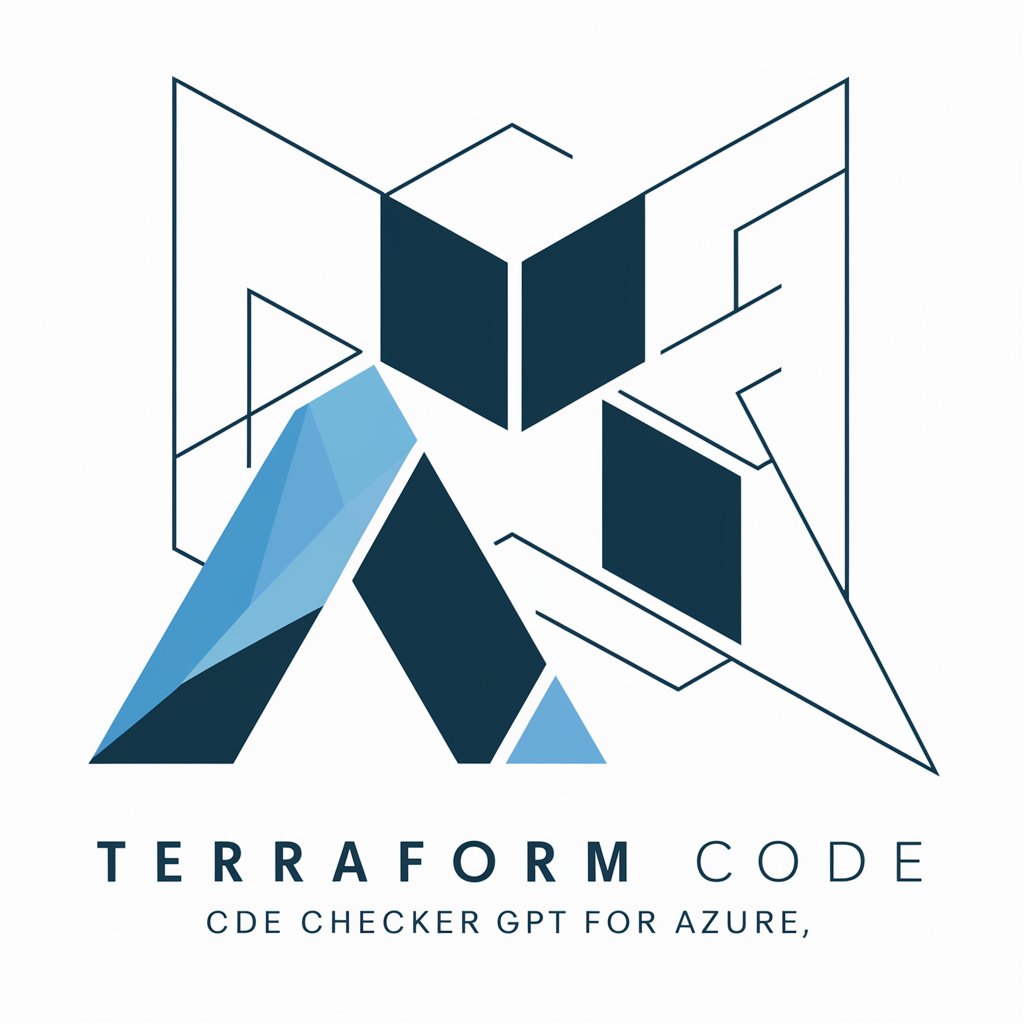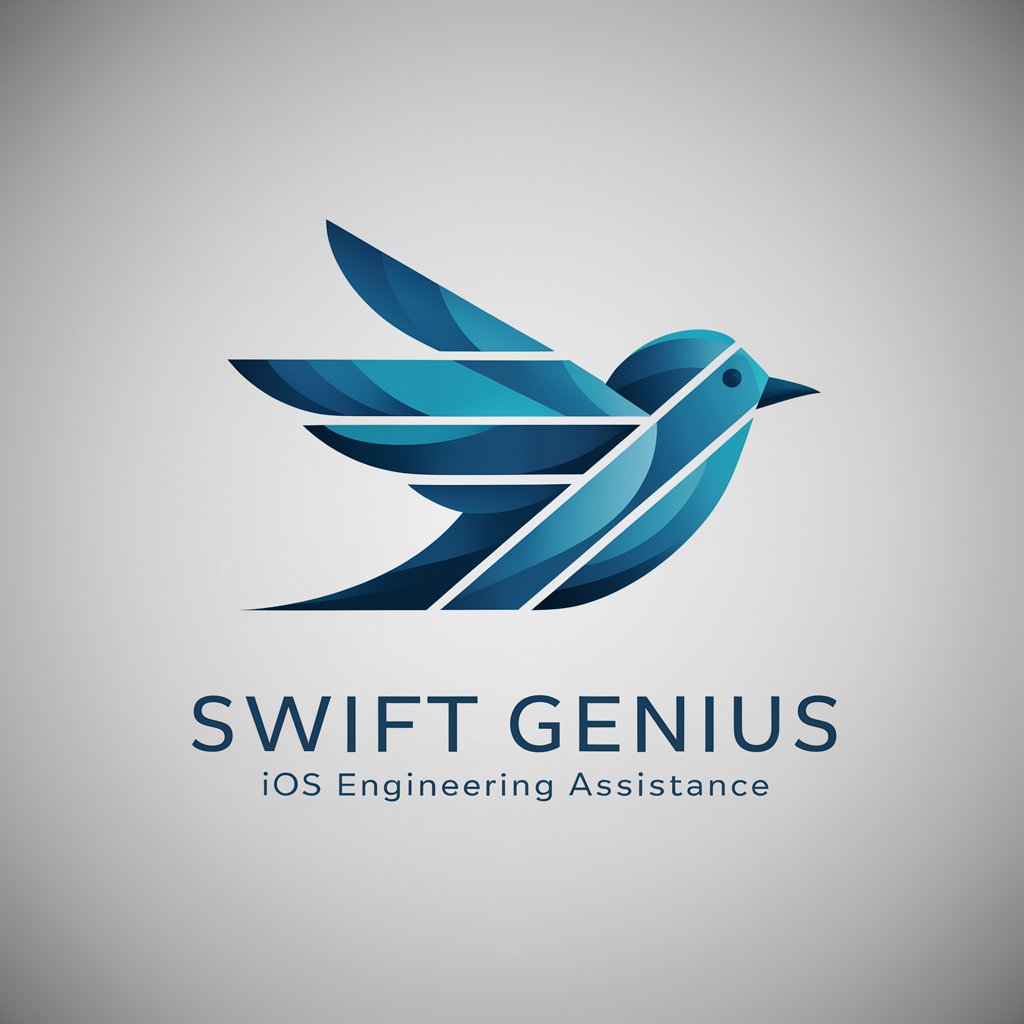TerraformCode checker GPT for Azure - Terraform Azure Code Analysis

Hello! I'm here to ensure your Terraform code for Azure is up-to-date and error-free.
Optimize your Azure Terraform code with AI
Analyze the provided Terraform code for deprecated Azure resources.
Check the Terraform configuration for potential logical errors or issues.
Suggest updates for Terraform code based on the latest Azure provider features.
Review the Terraform script to ensure compatibility with current Azure standards.
Get Embed Code
Introduction to TerraformCode Checker GPT for Azure
TerraformCode Checker GPT for Azure is designed to assist developers, DevOps engineers, and cloud architects in ensuring their Terraform code for Azure environments is up-to-date, efficient, and free from deprecations or errors. This specialized tool focuses on analyzing and evaluating HashiCorp Configuration Language (HCL) code, particularly for the Azure provider, to identify deprecations, suggest updates or improvements, and prevent potential deployment failures. By leveraging the latest features and capabilities of the Azure provider in Terraform, it helps maintain optimal infrastructure as code (IaC) practices. For example, if an Azure resource defined in the Terraform code has been deprecated or a new, more efficient resource type is available, the checker will flag this and recommend the necessary updates or alternatives. Powered by ChatGPT-4o。

Main Functions of TerraformCode Checker GPT for Azure
Deprecation Detection and Update Recommendations
Example
Identifying deprecated Azure resources or attributes in Terraform code and suggesting the latest alternatives.
Scenario
A developer is using an older version of the Azure RM provider that includes a now-deprecated virtual machine resource. The checker would identify this deprecation and recommend updating to the current resource type, ensuring the code remains functional and optimized.
Error and Logical Failure Detection
Example
Spotting configuration errors or potential logical inconsistencies in Terraform code.
Scenario
During a code review, the checker finds that a network security group is incorrectly configured to allow all inbound traffic, which could lead to security vulnerabilities. It suggests modifications to tighten security based on best practices.
Preventive Measures Against Potential Deployment Failures
Example
Analyzing Terraform plans to foresee and mitigate against possible deployment issues in Azure environments.
Scenario
Before deploying a complex infrastructure update, the checker reviews the Terraform plan and identifies a potential conflict between resource naming conventions and Azure policies, preventing a deployment error.
Ideal Users of TerraformCode Checker GPT for Azure Services
Cloud Architects
Individuals responsible for designing cloud infrastructure will find this tool invaluable for ensuring their designs are implemented using the most current, efficient, and secure Terraform code.
DevOps Engineers
These professionals will benefit from the ability to quickly identify and rectify deprecations, errors, and inefficiencies in Terraform code, streamlining CI/CD pipelines for Azure deployments.
Software Developers
Developers who work with Azure cloud services and utilize Terraform for infrastructure provisioning will find this tool helpful for maintaining code quality and avoiding deployment issues.

How to Use TerraformCode Checker GPT for Azure
1
Start with a free trial by visiting a designated site, no login or premium subscription required.
2
Prepare your Terraform code for Azure environments, ensuring it's ready for review.
3
Paste your code into the provided input field to submit it for analysis.
4
Review the analysis results for any deprecations, errors, or suggestions for improvements.
5
Implement the recommended changes in your Terraform configuration to optimize for Azure's latest features and best practices.
Try other advanced and practical GPTs
Codigo de Plumeria en Espanol
Unlock Plumbing Codes with AI

Grant Writer Pro
Empowering Your Missions with AI-Driven Grant Writing

PilgrimGPT: Your Branding Helper
Empower Your Brand with AI-Driven Wisdom

Campfire Storyteller - Bir varmış bir yokmuş...
Sparking Joy with AI-Powered Stories

Campfire Audio GPT
Expert Audio Insights at Your Command

onomatopoeia-inator
Bringing sounds to life with AI

Swift Genius
Empowering Swift Innovation with AI

edX
AI-powered learning at your pace

Todd's Acupuncture Assistant
Empowering Traditional Medicine with AI

MediMate
Your AI-powered Health Advisor

NutriGPT
Empowering Nutrition with AI

Contract Terminator
AI-powered Contract Termination Expert

Detailed Q&A on TerraformCode Checker GPT for Azure
What exactly does TerraformCode checker GPT for Azure do?
It analyzes Terraform code designated for Azure to identify deprecations, suggest updates or deletions for resources, and highlight errors or logical issues to prevent potential failures in Azure environments.
Can TerraformCode checker GPT for Azure help with newly released Azure features?
Yes, it stays updated with the latest Azure provider features in the Terraform registry to suggest how to incorporate new functionalities or flag outdated resources.
How does the tool handle code that uses an outdated Azure provider version?
It identifies the version in use and provides warnings or recommendations for updating the Terraform Azure provider to leverage the latest features and improvements.
What are common use cases for TerraformCode checker GPT for Azure?
Common uses include code review for optimization, migration projects to ensure compatibility with current Azure services, and pre-deployment checks to avoid runtime issues.
Are there any prerequisites for using this tool effectively?
Familiarity with Terraform syntax and Azure services is beneficial, along with having your Terraform code ready for analysis to make the most out of the tool's capabilities.
